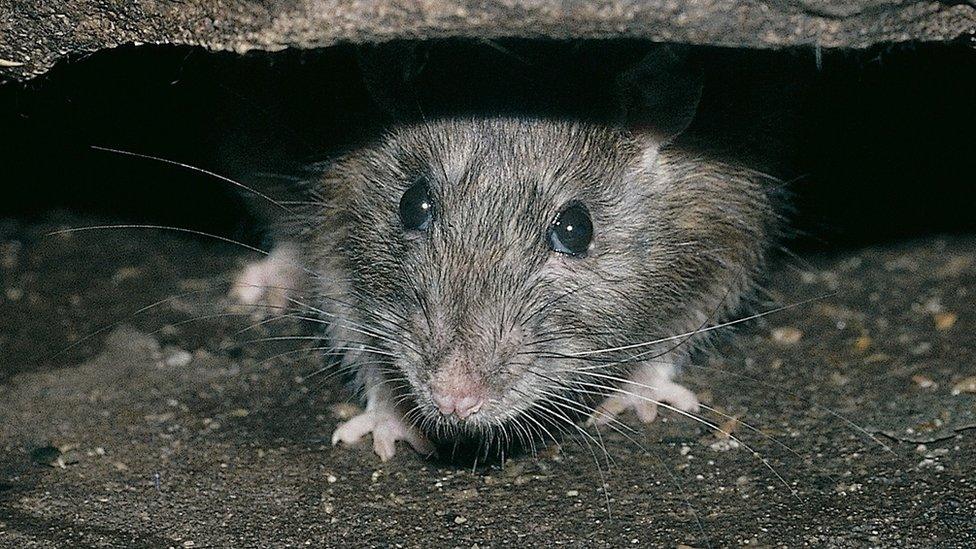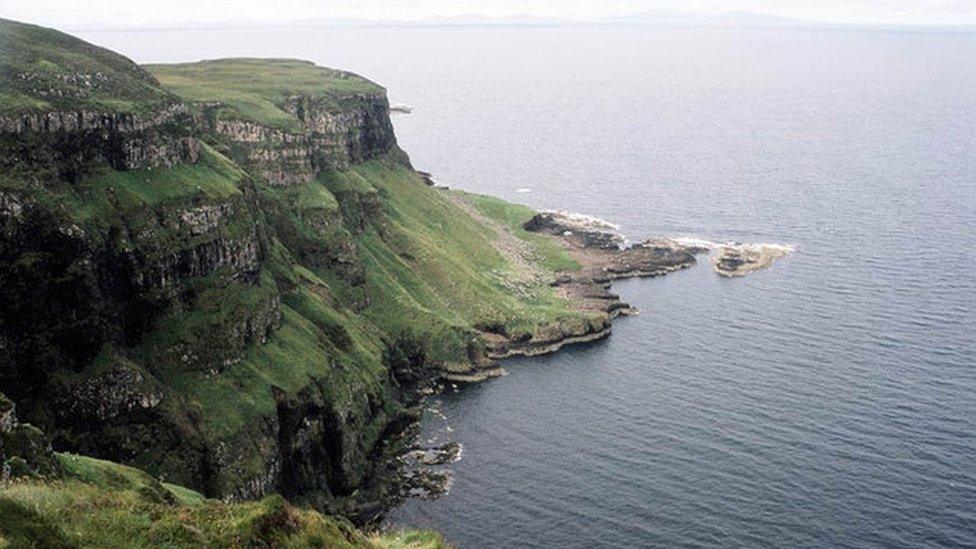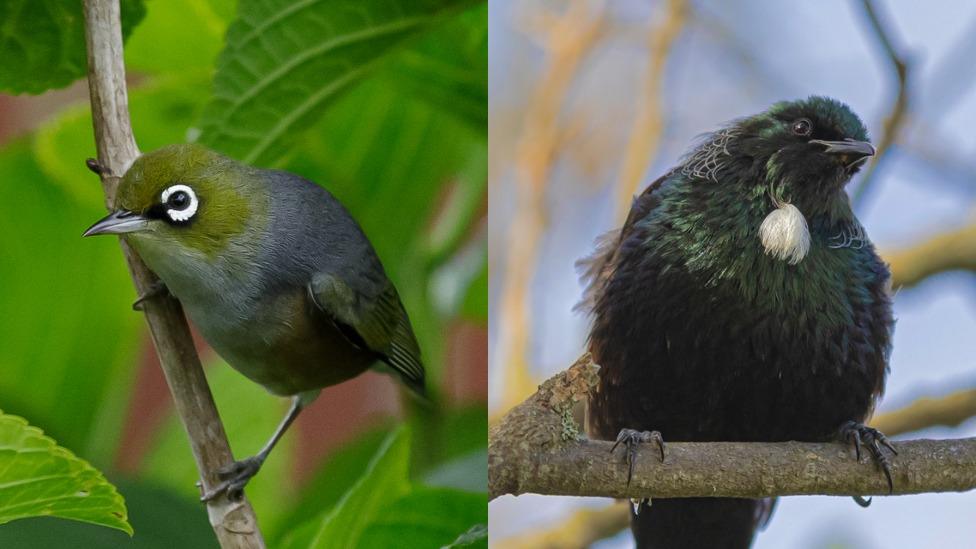The communities on a mission to exterminate rats
- Published

Slithery tails, sharp gnawing teeth and beady black eyes - few animals provoke such a visceral reaction in human beings as rats.
And few places in Britain have faced rat problems such as those experienced on the Hebridean island of Canna.
The rodents first arrived on the island on ships about 100 years ago.
By 2005 Canna was, literally, crawling with rats. The population of the tiny island - which is just 7km (4.3 miles) long by 1.6km (1 mile) wide - had 10,000 rats and only 15 humans. The rats were eating the eggs and chicks of ground-nesting seabirds as well as chewing through food supplies and farming equipment.
They had also posed a threat to Canna's rare wood mice, 130 of which were transferred to Edinburgh Zoo before the cull.
But pest controllers managed to get rid of them, using poison and traps.
With the support of the small community, and an intensive programme of rat extermination, the island was officially declared rat-free in 2008.

The island of Canna had a large population of rats
For many urban dwellers, rats around bins or scuttling between railway tracks are a common sight. Many of us accept rats as four-legged fellow citizens.
But our increasingly changing climate can create prime breeding conditions for rats.
Rat infestations tend to follow in the wake of flooding or when there are breakdowns in sanitary and refuse services. We've seen this in recent years in places such as Bridgend in Wales.
Pest control in the UK is estimated to cost about £1.2bn each year, and some experts are wondering whether it might be time for a new approach. A strategy to totally exterminate rats could save money, preserve public health and benefit wildlife.
Could it be time for rats to be eradicated for good?

The Silvereye or Tauhou, left, and the Tui, right, are native to New Zealand
It is this approach that is being tried in another island nation, New Zealand (in fact, it was pest controllers from New Zealand who were brought to Scotland to sort out Canna's rat problem). It has committed itself to being predator-free by 2050.
Their remit is broader than just rats. New Zealand's definition of a mammalian predator encompasses stoats and possums as well. Together they are blamed for killing approximately 25 million native birds each year. Since many New Zealand birds (including the iconic Kiwi) are flightless, they make easy pickings for hungry ground-based mammals.
At the centre of New Zealand's drive to make the island rat free within three decades is Zealandia, a conservation project on the outskirts of Wellington. It aims to restore the island's biodiversity by keeping predators out.
They're doing this with the help of a big metal fence. It is 8.6km (5 miles) long and 1.8m (6ft) tall with an overhanging top and a tight metal mesh. It encircles 2.2sq km (0.9sq miles) of New Zealand wilderness and cost £1.2m. It is cleverly designed to lock out more than 14 species of non-native land mammals.
But if Zealandia - with its futuristic vision of a New Zealand restored to its pre-human state - is remarkable, perhaps more extraordinary is the enthusiasm with which the public there have embraced the idea of killing rats.

The Lemons kill and capture rats
At weekends, Michelle Lemon and her kids Micky, Sophie and Elijah head out with traps and boxes to kill and capture rats.
The Lemons are typical of families across New Zealand who have taken up trapping and extermination as a civic and environmentally-minded hobby. As a result, supporters say, birdlife in New Zealand is booming again.
It might be hard to imagine British families turning rat hunting into a weekend leisure activity. What is certain is that any attempt to eradicate rats in major urban centres like Glasgow, Liverpool or Birmingham would need huge amounts of public support.
Prof Steve Belmain, of Greenwich University, sees community support as central to the rat extermination programme down under: "New Zealand has a very unique situation. It is very much a community thing there. If we wanted to do this in the UK to any great extent, it is about community buy-in and community participation."
So could a bold plan to eradicate rats work on this side of the world?
Prof Tony Martin, of Dundee University, was named Conservationist of the year in 2016 for leading a team which eradicated rats from the Falkland island of South Georgia. But even he would think twice if he was called upon to clear all the rats from a major British city: "I think I'd run a mile. Getting rid of rodents in a city is a nightmare.
"In a country like ours, you have a dense population of people, you have cellars, you have sewers, you have rats absolutely everywhere. I just wouldn't know where to start."
But not everyone is so sure that the radical solution tried in New Zealand and Canna couldn't work in a UK city.
Self-styled "rat tsar" Dr Bobby Corrigan - who is based on another rat-infested island, New York - thinks it might just be time for a radical rethink when it comes to the relationship between man and rat.
"I think it is worth vetting [the idea] and then asking how far can we push it scientifically and then taking it from there."
Positive Thinking: Boomtown for Rats is on at 09:00 on 2 January on Radio 4 and after on BBC Sounds